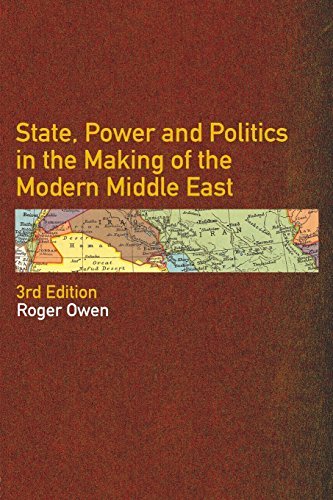What do you think?
Rate this book


Roger Owen has fully revised and updated his authoritative text to take into account the very latest developments in the Middle East. This new edition continues to explore the emergence of individual Middle Eastern states since the fall of the Ottoman Empire at the end of the First World War and the key themes that have characterized the region since then. The book continues to serve as an excellent introduction for newcomers to the modern history and politics of this fascinating region.
279 pages, Paperback
First published January 1, 1992